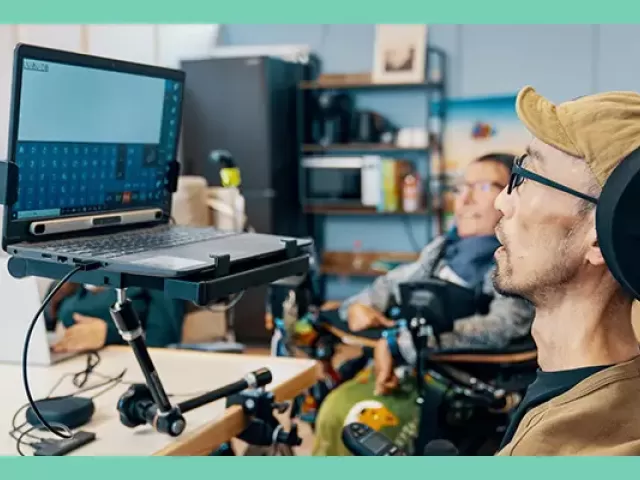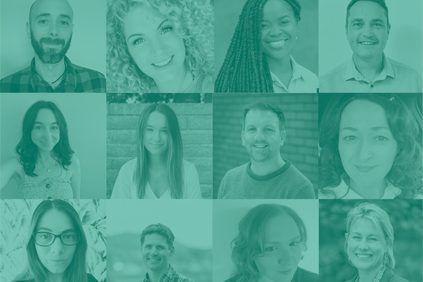Project summary
There are currently extensive waiting times for individuals awaiting assessments for suspected neurodivergent conditions and gaps have been identified in the level of support and information people receive while they await their assessment.
Aims
Our aim was to work with the Welsh Government’s neurodivergence and learning disabilities team to identify how we might provide faster and easier access to resources and support. We wanted to explore how we could make providing and gathering information to support a neurodivergence referral and assessment more effective and efficient.
We also gathered evidence about the value of pursuing digital solutions to address and support these problems. Through desktop research we learned that in England, for example, they are using digital solutions in this area and our research explore pros and cons for this solution.
Partners
During the 12-week discovery, we worked with our stakeholders, Sian Delyth Lewis (Neurodivergence Programme Manager), and Einir Price (Senior Neurodivergence Manager) from the Welsh Government’s neurodivergence and learning disabilities team.
A summary of the work so far
We conducted desktop research based on recommended materials from the Welsh Government’s neurodivergence and learning disabilities team to get an overview and understanding of the existing neurodivergence assessment and referrals service.
This understanding helped with our user research interviews as we were able to check with participants whether our understanding was an accurate reflection of the existing service.
The team referred us to the Welsh Government’s neurodivergence network which consists of neurodivergent Welsh Government employees. We shared our research discussion guides with them to ensure that the language we used was right. We worked through a handful of iterations on the discussion guides as the subject matter was of such a sensitive nature that we wanted to ensure that we were providing due diligence to our approach when interviewing participants who would be detailing their lived experiences of their referral and assessment journeys.
User research
We identified 3 key user groups for our research:
- professionals who are part of the neurodivergent referrals and assessment service
- parents or guardians of neurodivergent young people and children
- neurodivergent adults
We interviewed 10 participants from each of the 3 user groups. To ensure that the experiences were as up to date as possible, we focused on individuals who had received neurodivergent assessments and diagnosis within the previous year. This included participants from each region in Wales within each user group.
Building bilingual services is one of our Digital Service Standards for Wales. We were successful in recruiting Welsh language users of the service and were able to facilitate Welsh interviews for these individuals.
Findings
The findings from the research highlight significant challenges and areas for improvement in the current diagnostic assessment and support processes for neurodivergent individuals.
Increasing demand
Professionals note a rising demand for neurodivergence services, driven by heightened awareness, especially through social media. A notable study indicated a significant surge in autism diagnoses, correlating with increased awareness prompting more diagnostic assessments.
Reliance on specialists
Bottlenecks (points of congestion) in the process are further exacerbated by the reliance on a limited number of specialists, leading to long waiting lists and user frustration.
User experiences and challenges
Users face challenges in accessing information and support, often resorting to self-research and feeling unheard by professionals. Parents of neurodiverse children endure significant emotional and financial strains while navigating the system.
Professional perspectives
GPs and other professionals struggle with limited time and resources, managing complex information gathering processes and administrative burdens. Assessors face constraints in providing support due to overwhelming demand for diagnostic assessments. These findings underscore the need for systemic changes to better support neurodiverse individuals and their families while alleviating pressure on professionals.
Digital enabler
Our research underscores the significance of developing a digital enabler that caters to the needs of both users and professionals within the neurodivergence diagnostic assessment process including concepts such:
A digital information gathering product:
- professionals express a strong desire for a centralised digital tool facilitating information gathering
- current inefficiencies and time-consuming processes highlight the necessity for such a product
- users and professionals alike stand to benefit from streamlined information collection and dissemination
- further development of a digital enabler should prioritise accessibility and user-friendly features
A digital resources and support repository:
- users value access to trustworthy, centralised neurodivergence information and resources
- professionals acknowledge the need for a centralised repository to address information overload and ensure resource quality
- a national repository could enhance awareness and simplify resource sharing among professionals and users
A digital profiling product:
- limited insights into this concept suggest potential benefits for self-assessment and resource signposting
- concerns regarding complexity highlight the need for further research and refinement of digital profiling tools
The digital integration of separate information sources:
- integration of information from various sources is recognised as vital for effective neurodivergence case management
- while appealing, the complexity and cost of implementation necessitate careful consideration before adoption
Recommendations
We’re made a number of recommendations including doing further work to explore the development of a digital information gathering product to address key user and professional needs. This phase would test potential solutions to the problems identified without long term commitment to implementation until we reach high confidence in any solutions. It would also allow us to focus on testing assumptions, defining user requirements, ensuring accessibility, and exploring implementation strategies.
We made a secondary recommendation of creating a centralised resource and support repository to streamline access for users and their support networks. This phase of work would explore how we could better organise existing information to better meet user needs, while address challenges related to content sourcing, validation, and directory maintenance.
Next steps
We are now working on a short 5-week piece of work to support the primary recommendation of exploring options for a digital information gathering product which would address key user and professions needs identified in the discovery.
The team will be identifying potential products, testing their assumptions, and looking at each product in relation to:
- the Digital Service Standard for Wales
- user needs
- partner business needs
- common best UX practice
- considerations when designing for neurodiverse audiences
- service target outcomes
If you would like to keep up to date with this project and the other work carried out by the CDPS, sign up.

